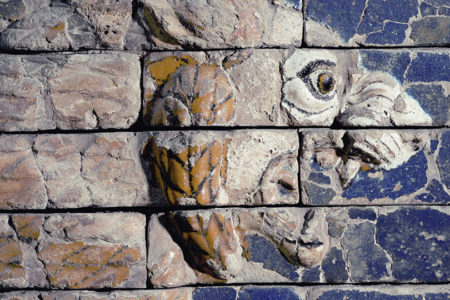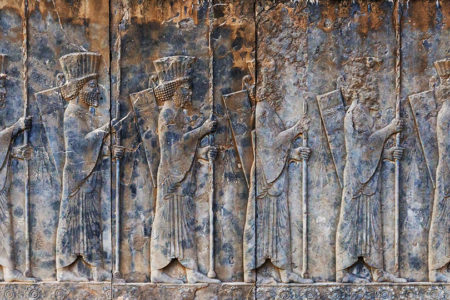Are You a Naomi? Part One
I’m not much of a shopper. My favorite place in the mall is probably the ice cream parlor, where I’ve spent many a pleasant moment contemplating the virtues of hot fudge versus butterscotch and mocha almond crunch versus just plain mocha. I’ve also found it a good place to observe human behavior.
Many years ago, when my daughter Jamie was fifteen, we stopped there briefly so Jamie could buy a scoop of ice cream. I sat on a bench in the mall while she stepped up to the take-out counter, patiently waiting her turn. The woman ahead of her must have been quite a shopper because a slew of packages dangled from her left wrist as she held a cone, precariously laden with a double dip of chocolate ice cream, in the same hand. With her right hand she tried to fish around in her shoulder bag, desperately trying to come up with the last ten cents she needed to pay for her snack.
Jamie watched her. Then, without a word, my daughter reached into her wallet, smiled at the woman, and handed her a dime. The woman smiled back gratefully, completed her purchase, and left.
When Jamie returned to me with her ice cream, I said, “I saw what you did. That was really nice of you, honey.”
She shrugged. “It was nothing,” she said. “I’ve seen you do the same thing.” It was then I fully realized, perhaps for the first time, that my actions truly spoke louder than my words. Not once had I ever taught Jamie to do what she did. She did it purely because she had seen me do it. All the years I sat in the ice cream parlor observing others, it never occurred to me that others probably were observing me. It occurred to Jesus, however. He commands us, “Let your light so shine before men, that they may see your good works, and glorify your Father, who is in heaven” (Mt. 5:16). The testimony of a godly life may do more to attract unbelievers to Christ than the words of a hundred lectures.
Ruth, after whom the biblical book of Ruth is named, is a case in point. Scripture says she clung to her mother-in-law, Naomi, and would not leave her. Why? Surely not because Naomi preached at her, but because Naomi “let her light shine” and was a woman of excellence.
The story of Ruth and Naomi is a beautiful interlude in the otherwise degenerate, faithless, and chaotic time of the judges, a 370-year period in Israel’s history when the Israelites repeatedly strayed from God and returned only under the intense pressure of divine discipline.
Naomi and her husband, Elimelech, lived in Bethlehem of Judah. But food was scarce in Israel due to a famine. So Elimelech, whose name means “my God is King,” took Naomi and their sons, Mahlon and Chilion, across the Jordan to Moab, where his God was not worshiped as King or God.
Soon Elimelech died, and Mahlon and Chilion married Moabite women. Scripture says they lived in Moab (present-day Jordan) about ten years (Ruth 1:3–4). Then Mahlon and Chilion died. All Naomi had left were her two daughters-in-law. Old and bereft of her husband and sons who loved and supported her, Naomi faced a bleak future. When word got to Moab that the famine was over and “the LORD had visited his people in giving them food,” Naomi decided to return home (Ruth 1:6).
Interestingly, both her daughters-in-law started to go with her (v. 7). Yet they had every reason to stay behind. They were not Israelites; and, as Bible scholar Alfred Edersheim explained, Naomi “could offer them no prospect of wedded happiness in her own family, and . . . no Israelite in his own land would ever wed a daughter of Moab.”1
In a tender gesture of selflessness and love, Naomi urged Ruth and Orpah to abandon her and return to their families in Moab, since they were still young and could remarry. She would go on alone. “Then she kissed them; and they lifted up their voice, and wept” (v. 9).
It is a testimony to Naomi’s godly character that neither woman wanted to leave her: “Surely we will return with thee unto thy people,” they said (v. 10). But Naomi insisted, feeling they had no hope of happiness in Israel: “For it grieveth me much for your sakes that the hand of the LORD [Jehovah] is gone out against me” (v. 13). They all wept with each other again, and Orpah left.
Returning to Moab, of course, meant returning to Chemosh, the vile, disgusting national god of the Moabites that Scripture calls “the abomination of Moab” (1 Ki. 11:7). In fact, several hundred years later, the king of Moab sacrificed his own son and heir to the throne in a burnt offering to Chemosh in hopes of winning a battle against the Israelites (2 Ki. 3:21–27).
Orpah left Naomi, but Ruth clung to her. Something in her mother-in-law’s behavior knit Ruth’s soul to Naomi’s and drew her more deeply to Naomi and the God of Israel than all she would leave behind:
Entreat me not to leave thee, or to turn away from following after thee; for where thou goest, I will go; and where thou lodgest, I will lodge: thy people shall be my people, and thy God, my God. Where thou diest, will I die, and there will I be buried; the LORD do so to me, and more also, if anything but death part thee and me (vv. 16–17).
As Edersheim so eloquently wrote, “Unless the Moabitess Ruth had learned to know and love the land and the faith of Israel . . . she would not have followed so persistently her mother-in-law, away from her own home, to share her poverty, to work, if need be, even to beg, for her.”2
Naomi’s life changed Ruth’s, not so much because Ruth later married an Israelite and bore a child, but because Naomi’s disposition drew Ruth toward the only true and living God—the God of Israel.
I have no idea what all my actions have taught my two daughters over the years. Sometimes I shudder to think about it. But I learned from Jamie at the ice cream parlor that when God tells us to let our “light” shine, He intends for us to flood those around us with a Christ-like beacon that lights up the path to Him, as Naomi lit the path from Chemosh to Jehovah.
But Naomi did something else as well.
Continued next issue
ENDNOTES
- Alfred Edersheim, Bible History Old Testament, rev. ed. (Peabody, MA: Hendrickson Publishers, 1995), 392.
- Ibid., 391.






